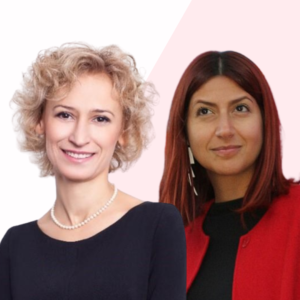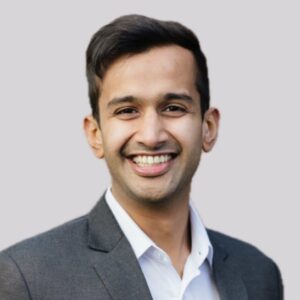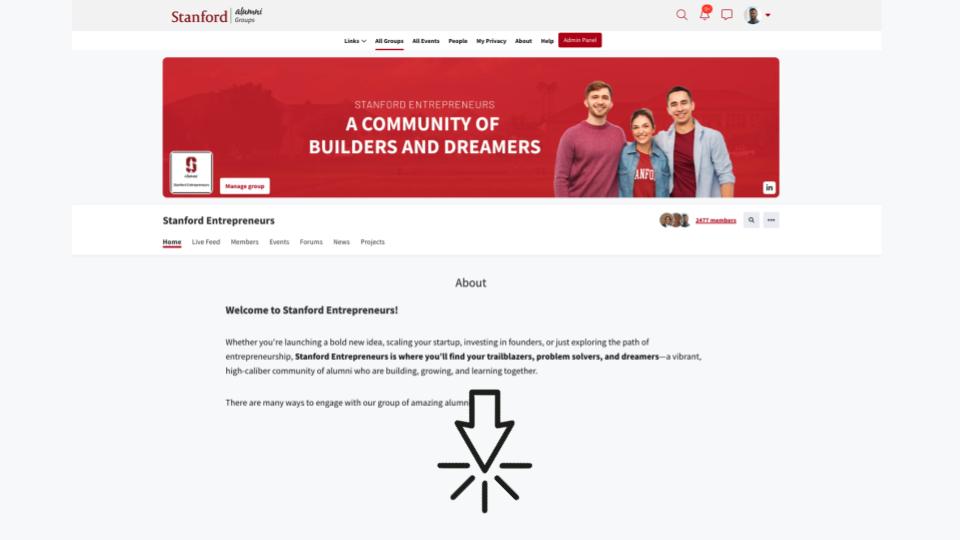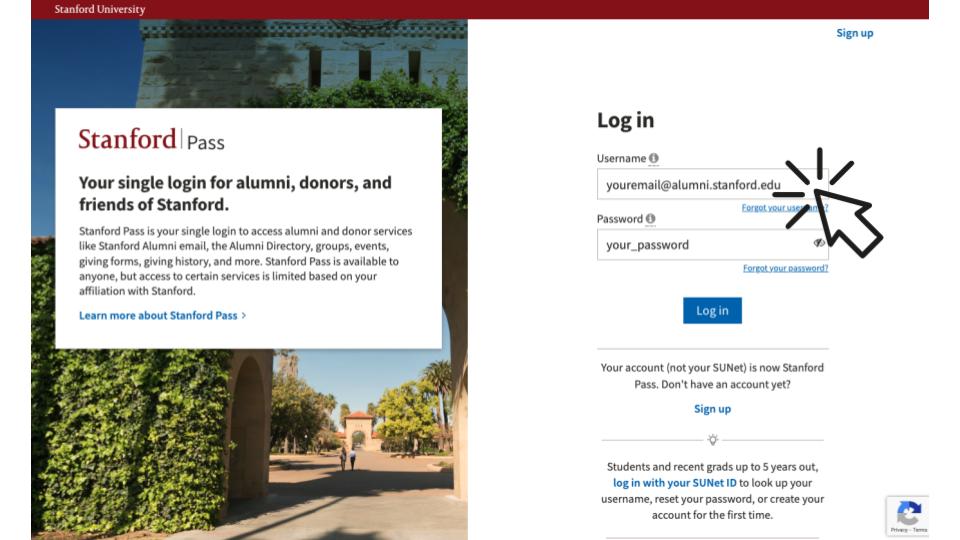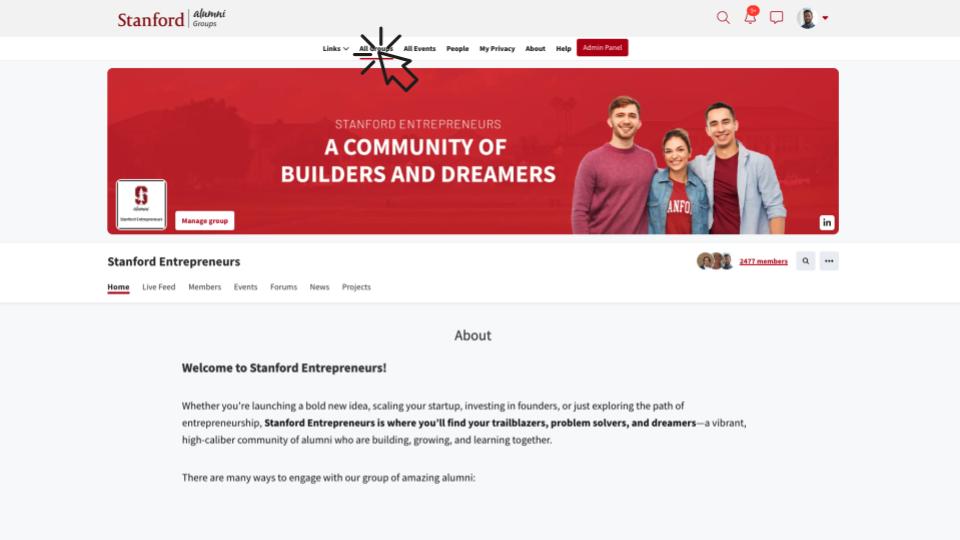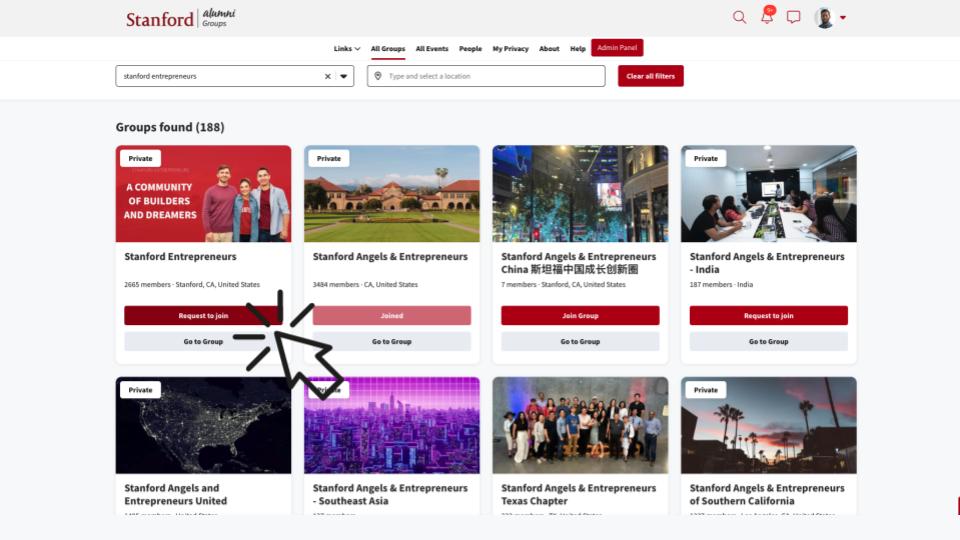Founder of Ellerra, Stephen shares his entrepreneurial insights with our community, starting with his journey from an entrepreneurial family background to co-founding a financial intelligence platform. He also discusses his deep passion for learning and education.
MEET STEPHEN
🇺🇸 / 🇲🇽 Hometown: Born in Fresno, CA of Mexican heritage.
🚀 Claim to fame: Co-founder of Ellerra, a company providing financial intelligence for startups and businesses. He is also a former entrepreneurship instructor at Berkeley’s College of Engineering.
💼 Previous gigs: He started his own small ventures as a kid, including a Coke stand and selling candy bars. His first “real job” was in sales. He worked in sales for a software company.
🎓 Stanford degree: MS in Learning Design & Technology.
💡 Biggest lesson as a founder: It’s going to be harder than you think, take longer than you think, and cost more than you think. Also, that “nobody is self-made”.
😎 Fun fact: Even though he now holds degrees from Stanford, Cornell and (soon) Harvard, he was not a strong student in high school, barely graduating. He struggled with reading and writing, possibly due to dyslexia.
🧠 On productivity: Starts every day by writing his top three priorities in a physical “planner pad”. He dedicates a full week between Christmas and New Year’s to reflect on the past year and plan for the next.
📣 Startup advice: Young founders should get a job first to get paid to learn and build a nest egg, ideally at a larger company. He also advises that entrepreneurs must be comfortable with the inherent difficulties, time, and costs of starting a company.
⛑️ Surprising hobby: He is “addicted to this personal growth” and loves watching and learning from experts in various fields, aiming to develop his own expertise in helping others learn.
Entrepreneurial Journey
💬 Tell me a little bit about your background. When did the entrepreneurial bug bite you?
I was very fortunate to grow up in a very entrepreneurial family. My grandfather on my dad’s side was a salesperson, and his mother owned a family store. My grandfather on my mom’s side was also an entrepreneur with several businesses. My parents were entrepreneurial too, having a collectible plate store and a restaurant. I always loved business, even as a kid, finding it “really cool” to have a company, make profits, and make employees happy.
My first “real job” after high school was a 100% commission sales job selling housewares, which I loved because you could “create business out of nothing”. Before that, I had my “own little ventures” like a Coke stand and selling candy bars.
💬 Did you ever have to make a conscious decision between a corporate job and entrepreneurship, or was it always your path?
I wasn’t a strong student in high school; I barely graduated and wouldn’t have gotten into the universities I later attended. I struggled with reading and writing, possibly due to dyslexia, which made it hard to process words.
Initially, I leaned into what I was good at, which was “talking and making connections”. After a couple of years, I started junior college classes and became fascinated with learning and how people learned. I realized it wasn’t that I was bad, just that it took me longer.
A quote I read in 2000, “I used to think there was no light at the end of the tunnel, then I realized I was facing the wrong direction,” really stuck with me and motivated me to pursue formal education to reach the “next level”. I set a goal to graduate from Berkeley and Harvard.
At Berkeley, I loved that they taught “how to think,” fostering critical thinking and self-questioning. This experience made me “addicted to this personal growth”.
I later taught entrepreneurship at Berkeley’s College of Engineering and was “mind blown” to discover that many educators, even with PhDs, hadn’t formally studied how to teach or how people learn. This led me to study learning science, reading books like Make It Stick, and realizing how to apply these principles to teach the uncertainty and ambiguity inherent in entrepreneurship. I discovered a similar program at Stanford, and it became “the best learning experience I ever had” due to the access to professors and intellectual dialogue
💬 How did you transition from struggling in high school to pursuing graduate degrees in education and learning science?
I realized at some point that I’m “probably a terrible employee”. I don’t like micromanagement, constraints on thinking, or being told specific parameters for how to accomplish tasks. This naturally gravitated me towards entrepreneurship. While I had a sales job at a software company after Berkeley where I learned a lot from a great boss, I disliked the “bureaucracy” and “top-down micromanagement” of the corporate environment. I tried a smaller firm but found similar issues. I believe that in the corporate world, while they say they want entrepreneurial thinking, there are often too many constraints.
💬 What is your best advice for students graduating and deciding between a job and starting a company?
I almost always tell them to get a job first. The reason is you get “paid to learn” and develop skills, especially at a larger company that can fund your learning and help you build a “nest egg” for future risks. For those considering becoming a founder, there are three critical things you must be comfortable with, or you shouldn’t do it:
- It is going to be harder than you think. No matter how hard you anticipate it, it will be harder.
- It is going to take longer than you think. No startup journey is simple and quick; it takes a long time.
- It is going to cost more than you think. This includes both financial costs and significant trade-off costs such as relationships, time, and resources. You might have “no social life for months if not years”. I’ve made the founder decision “like five times,” and my co-founder even calls me a “masochist” for choosing “the hard, long, costly path”.
💬 Where do you see founders struggle the most once they make the leap to start a company?
One major struggle is that founders often “build products that people don’t really want” or that address a market that is too small or without a burning need. While technical barriers like building websites or apps have largely disappeared with modern AI tools – you can “throw up a website in a matter of an hour” now – the next big struggle is “struggling to get the pipes, the distribution”.
Founders find it hard to get their product in front of enough people to reach a “critical mass of clients,” especially when large platforms act as gatekeepers requiring payment for access to audiences.
About the Startup
💬 Tell me a little bit about what you’re building with your current company.
I co-founded Ellerra in March 2024. We focus on providing “financial intelligence” for startups, small, and mid-sized businesses. This includes services from bookkeeping to compliance, aiming to put the “plumbing in place” so founders can concentrate on building products and acquiring customers.
We describe ourselves as “service as a software,” stitching together various tools and processes. The inspiration came from seeing many founders struggle with setting up their financial statements for fundraising. I connected with my business partner, also named Stephen (who goes by SVG), who is a CPA. I saw firsthand his ability to clean up financials and put in “IPO ready” systems even for early-stage companies. My business partner handles all the accounting, finance, business setup, and legal aspects, while I focus on coaching and advisory, including sales strategy, scaling, and founder issues. Since launching, we’ve grown to over 120 clients, ranging from pre-seed to post-Series B companies. We are now scaling and building our own software because we didn’t find existing solutions that met our specific needs.
TOP TIPS
💬 How do you differentiate yourselves from other companies in the finance ecosystem?
We differentiate ourselves from typical software-as-a-service (SaaS) platforms like QuickBooks, Ramp, Brex, or Gusto. We are “more service as a software,” meaning we help integrate these platforms and implement processes that enable organizations to scale efficiently. Our approach allows clients to streamline operations and often save substantial amounts compared to hiring a large in-house finance team, because our business partner is an “expert”. We can provide a “Deloitte level” of sophistication for pre-seed startups, which is hard to get otherwise. I always advise founders to hire the “absolute best” attorney and accountant they can get. Legal issues or inaccurate financial filings can shut down a startup, and sophisticated investors will spot errors in your books. In my experience, “hands down, we’re the best” at what we do for our clients.
💬 What’s the best entrepreneurial advice you’ve ever received?
The best advice I received was from a mentor who would say he could predict the future, which always held two things: “uncertainty and opportunity”. As an entrepreneur, understanding that there will always be difficulty and opportunities makes it easier to navigate; the key is to capitalize on those opportunities.
💬 What’s the worst entrepreneurial advice you’ve ever received?
I think the advice to “follow your passion” can be damaging. I believe passion often develops from interest. It’s better to follow what is “interesting” because interests, like being interested in the ocean or aquaculture, can evolve into passions and lead to viable ventures, whereas a narrow passion (like collecting sea snails) might not. This is particularly relevant for younger individuals or those in early career stages.
💬 How do you stay productive as a founder?
My best productivity hack is using a physical “planner pad”. Every day, I write down my top three most important things that I must accomplish. This helps me focus my time on what’s important, not just urgent, given that time is a finite resource. The “super hack” is that at the end of each year, I spend a full week (usually between Christmas and New Year’s), sometimes with my partner, sometimes alone, to reflect on how I spent my time, what worked, what didn’t, and to plan my goals for the next year, including educational and career mapping. I also use it for journal entries and notes to track my thoughts.
💬 Do you have any hidden talents or passions?
I have a deep passion for “experts and learning”. I love observing experts in various fields—whether in movies, live entertainment, or even a magician—to understand how expertise is developed. I aim to develop my own expertise in helping “other people learn”. I consider myself “still a learning learner,” which is why I continue my own educational journey.
💬 Is there anyone who’s helped you in your career, directly or indirectly, whom you’d like to acknowledge?
I believe “Nobody is self-made.” Everyone is an “amalgamation of the environment… role models… and the biology”. My parents and grandparents have had profound impacts on me. I’ve had phenomenal, though not public, professional mentors like Brad Britain, Bruce Goodman, Dan Cassetta, Moren Haskell, and Holly Schroth. Public figures who influenced me include John Maxwell and Jim Ran (now Tony Robbins). Books like Make It Stick (for learning science) and How to Win Friends and Influence People by Napoleon Hill were also instrumental. My business partner, Stephen (SVG), is also a very significant professional influence.
💬 THANK YOU FOR YOUR INSights STEPHEN!



